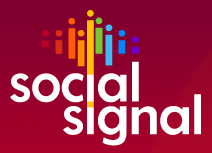- Home
- hoax
hoax
Apparent hoax hits Facebook
- 4 May, 2007
- 1
An ominous warning has been popping up from several of my friends on Facebook, suggesting the social networking site is suddenly selling your personal information. (It's been showing up as a "note", a blog-like feature the site offers.) Sounds serious – but it bears several hallmarks of a now-thankfully-dying breed of hoax email, especially the lack of any proof of the allegation, and that little viral bit at the end.
Here's the text of the note:
Apparently Facebook has started SELLING user information (surprise, surprise!) to third parties. They call it the "Facebook Development Platform."
To restrict use of your information, do the following:
1. Click "Privacy" on top right.
2. Under the "Facebook Platform" section click "Edit Settings".
3. Scroll down to the bottom and UNCHECK ALL of the items under facebook platform.
Most creepy is the inclusion of photographs!
(Do your friends a favor and repost this as your own note.)
Now, you still may want to follow those steps. But all it appears that you're doing is preventing members of your networks from accessing that information using external applications; it's nothing they can't already see using the site.
I asked Facebook if they could shed any more light on this. Here's what Facebook's director of corporate communications, Brandee Barker, told me (and kudos to them for getting back to me on the same day):
Yes, this message circulating on Facebook is false, thanks for checking. Facebook is not selling user information to anyone. In fact, Facebook Platform makes other applications — that users choose — an easy extension of their Facebook experience. Users log in to those applications the same way they do on Facebook through the safe, secure Facebook login page. Only a user’s friends and people in a user’s network can see his or her information, and everything is subject to the same privacy controls. Applications built on Facebook Platform are not allowed to store or collect user data, and again, Facebook certainly isn’t selling user information to anyone.
A cursory search hasn't turned up any previous Facebook hoaxes, so this could be a first. (Update: Way too cursory; there've been a few – see one recent example here – but I still haven't found anything viral.) Whether this was a deliberate attempt to sabotage Facebook's extension into the world of open APIs and third-party apps, or just a misguided bit of paranoia on someone's part, it points to the vulnerability of a new (or new-ish) medium to this kind of hoax.
Just as it took years for email users to look skeptically on modem-tax chain letters and the like, Facebook members will have to start adding a dose of scrutiny to the messages they receive on the site, as a flood of new, not always benevolent, users arrives.
Work Smarter with Evernote

Get more out of Evernote with Alexandra Samuel's great new ebook, the first in the Harvard Business Press Work Smarter with Social Media series!

